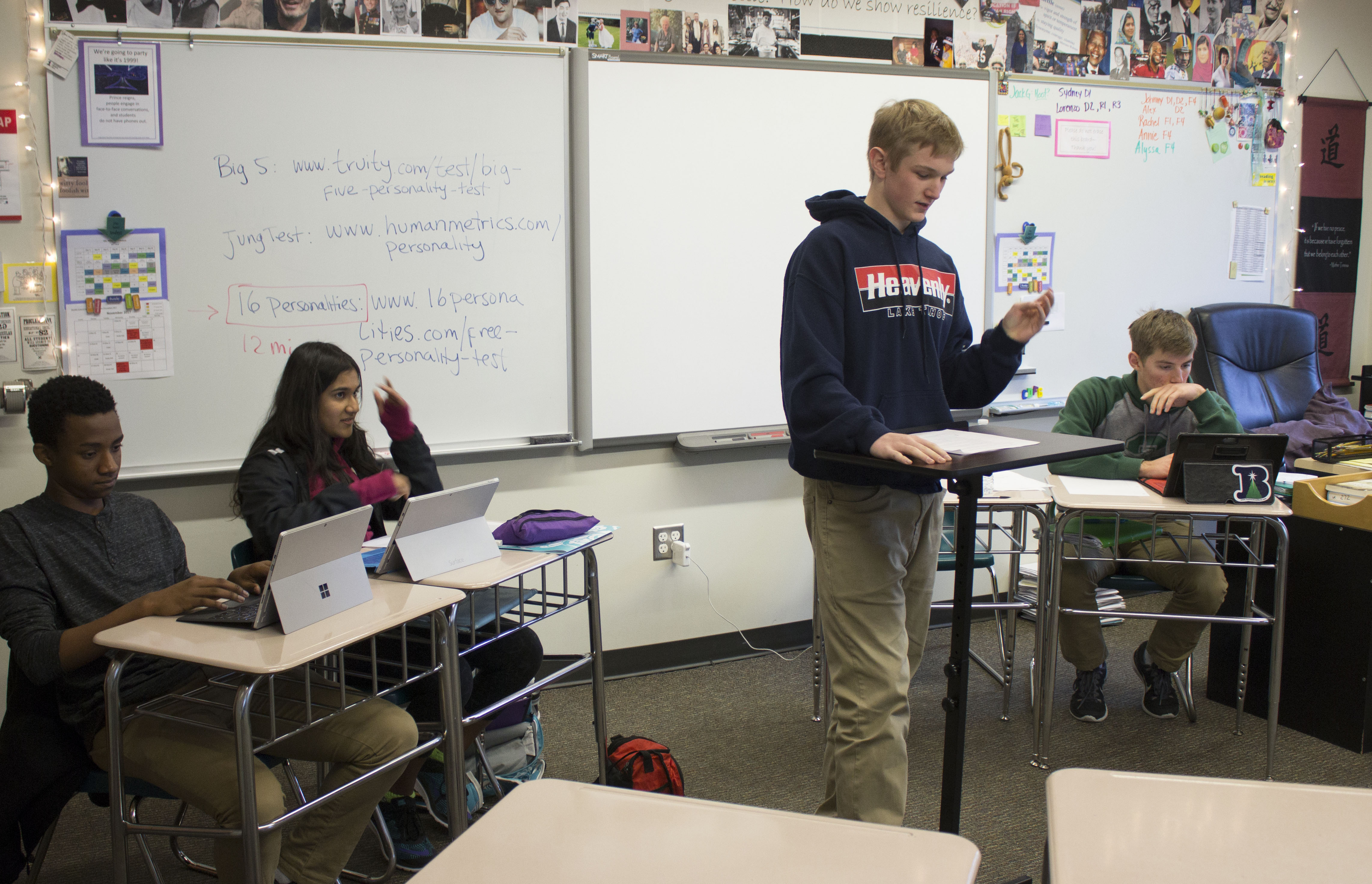- News
Public Forum Debate on Who is the Bigger Threat?

If you were to put your ear to the door of Emily Blackburn’s Upper School Speech and Debate class this week, you would have thought you were listening in to a State Department conference rather than a classroom discussion.
The students in Emily Blackburn’s class have been actively doing public forum debates in which debaters argue topics of national importance. With teams of two students, each side debated the pros and cons of a position. Thursday, the resolution was whether North Korea poses a more serious threat to the United States than Iran.
Making their points before two inexperienced judges, who ultimately determine the winner, the sides alternated with positions of researched facts, impassioned speeches, and strategy.
“The con side has difficulty with their argument,” says Blackburn. “I’d go up there and say, ‘Fact: North Korea has nuclear capabilities. However, we need to look at which of the two countries poses a bigger threat to us, and that they (Iran) too may soon have nuclear missiles. Here are the reasons why.’ You have to be direct when you open.”
Blackburn adds that using claims (assertion and reasoning), warrants (evidence), and impact allows debaters to make their cases before judges who have little to no knowledge on the resolution.
Both teams used a conclusion speech to make a final plea to the judges. Both sides not only argued their own positions, but punched holes in their opponent's earlier claims and warrants. “If they don’t address or respond to something during the crossfire, we’ll point that out in our conclusion,” says Ngaya S. ’19. “Everything is now out in the open, and they can’t elaborate their points anymore, but, of course, you need to bolster your own arguments.”
Students will use the weekend to reflect on strengths and weaknesses in their debate. Blackburn wants an honest evaluation of their debate preparation, their effort, and, most importantly to ask, ‘What do debate skills tell you about yourself as a student and how can you use those skills in other classes?’
That reflection and improvement is what goes into the Upper School Speech and debate grading. “I grade them from where they started. In order to know what I’m going to be assessing, I need to know what they want to do to improve. We’ll do that in later debates,” says Blackburn who brings in debate judges so that she can focus on individual assessment.
Blackburn offered several topics to debate, but it was up to the students to choose. All of them agree that the assignment not only teaches them about speech, but also current events. “You see this story in the news all the time, and doing the research you learn from a bunch of sources,” says Eddie B. ’19 “I discovered so much about both countries in preparing for the debate.”
The judges came back and affirmed the resolution that North Korea poses a more serious threat to the United States than Iran. After a friendly handshake, and instructions for the next class, students dismissed for lunch.
We cannot confirm if that’s the way it works within the State Department.
